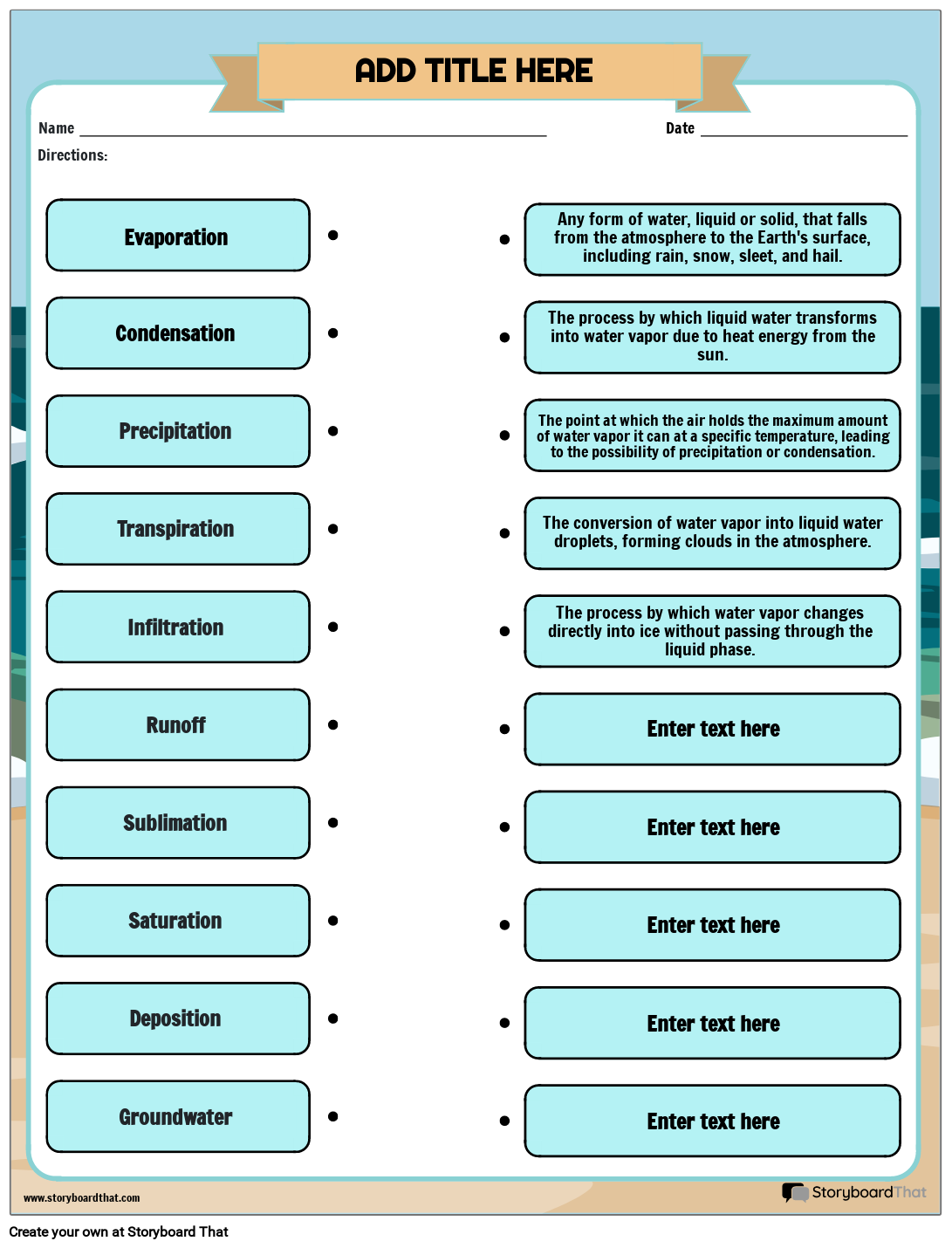Understanding the water cycle is crucial for understanding how water moves through our environment. It is essential for students, scientists, and anyone interested in the natural world to be familiar with the key terms and concepts related to the water cycle. By learning this vocabulary, we can better comprehend the processes that govern the distribution of water on Earth.
Whether you are studying hydrology, meteorology, or environmental science, having a solid grasp of water cycle vocabulary will enhance your understanding of how water shapes our planet. From precipitation to evaporation, each term plays a critical role in the continuous movement of water through the atmosphere, oceans, and land.
Water Cycle Vocabulary List
1. Evaporation – the process by which water changes from a liquid to a gas, usually due to heat from the sun
2. Condensation – the process by which water vapor cools and forms clouds or dew
3. Precipitation – any form of water, such as rain, snow, sleet, or hail, that falls from the atmosphere to the Earth’s surface
4. Runoff – water that flows over the land surface and into rivers, lakes, or oceans
5. Infiltration – the process by which water seeps into the ground and becomes groundwater
6. Transpiration – the release of water vapor from plants into the atmosphere
7. Evapotranspiration – the combined processes of evaporation and transpiration
8. Groundwater – water that is stored underground in aquifers or soil
9. Water Cycle – the continuous movement of water between the atmosphere, land, and oceans
10. Water Vapor – the gaseous form of water in the atmosphere
Understanding these terms will help you navigate discussions about water resources, weather patterns, and environmental change. By familiarizing yourself with water cycle vocabulary, you can better appreciate the interconnectedness of Earth’s systems and the importance of preserving our planet’s water resources.
As you continue to explore the intricate processes of the water cycle, remember the significance of each term and how it contributes to the overall movement of water on Earth. By expanding your knowledge of water cycle vocabulary, you can deepen your understanding of the natural world and the forces that shape our environment.
